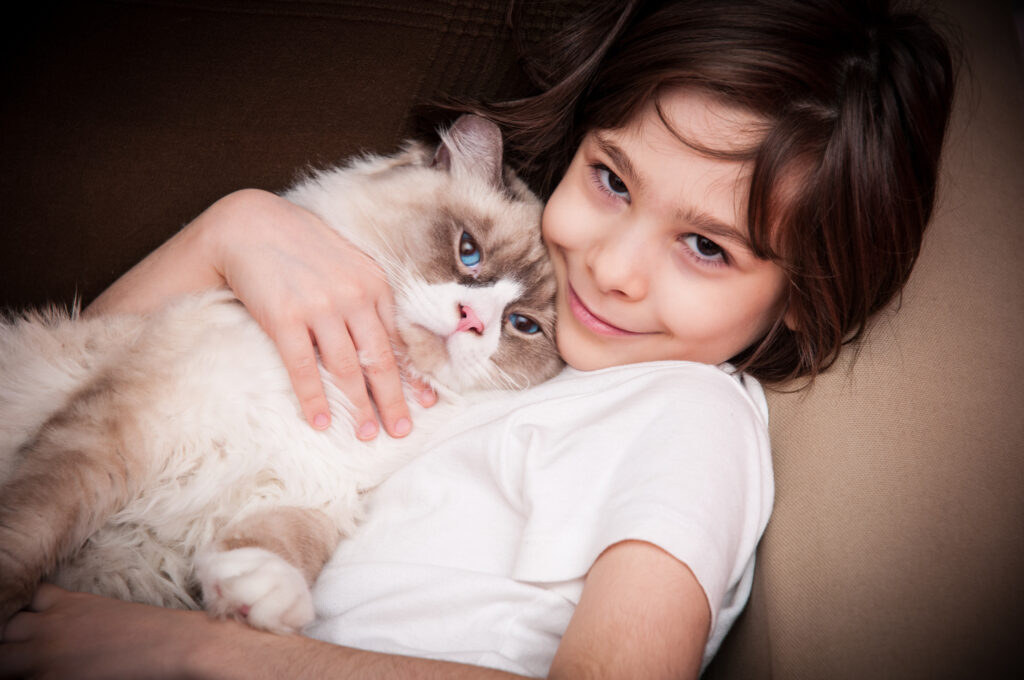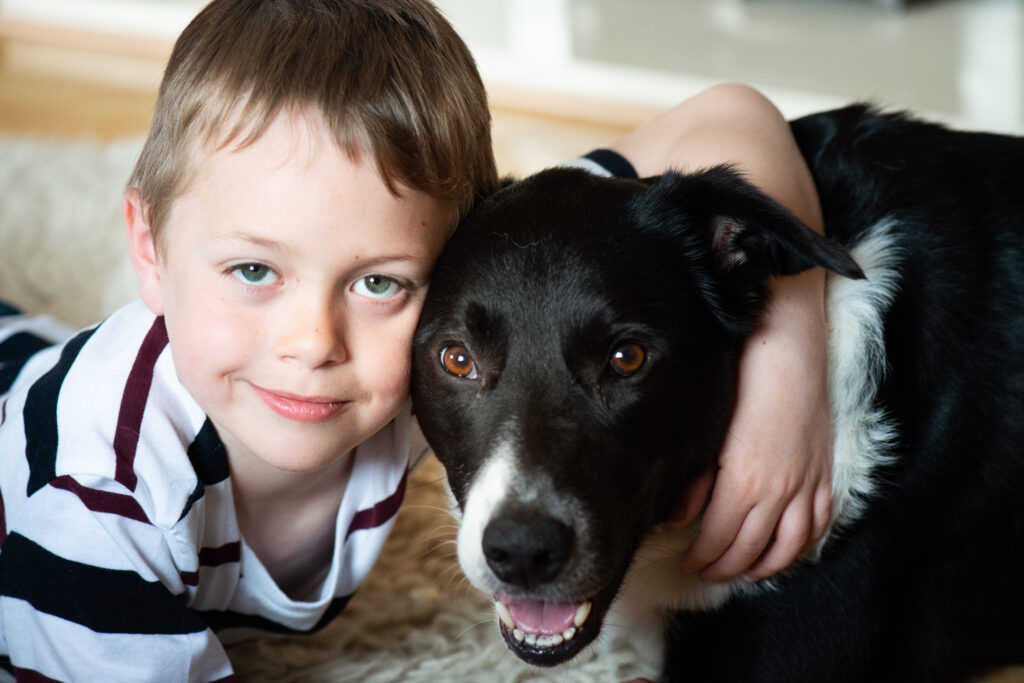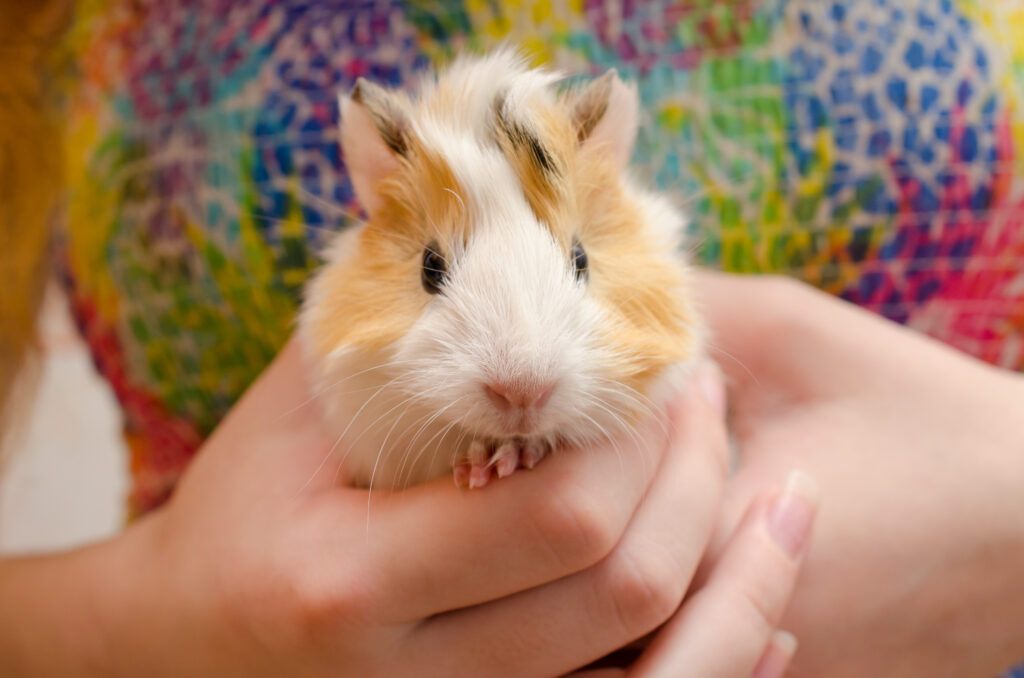Expanding research continues to discover having a family pet from the early years will help children with autism improve their social skills. With pets working as a “social lubricant,” these children had improvements in social behaviors, including introducing themselves, responding to questions, or asking for information. In addition, pets are excellent listeners, giving children a friend who listens whether they are happy or sad. The unconditional love and acceptance from a pet are believed to be why children with ASD have fewer and less intense meltdowns in a furry presence.
According to a literature review performed by the Human Animal Bond Research Institute, children with ASD responded positively to animal-assisted intervention with:
- Increased social awareness, social interaction, and social motivation
- Improvements in social skills and behaviors
- Decreased social isolation
Which pet is best? These three furry friends have been proven to significantly improve the lives and behavior of children with ASD and their families.
Purrfect Companions to Autism Therapy

Research just published in September by the University of Missouri discovered that adopting a shelter cat not only reduces stress and anxiety for children with autism, but helps the cat too! Researchers monitored the cat’s cortisol levels in collected feces and discovered it decreasing over time after adoption into a home with at least one child with autism. The cats also experienced weight gain, which shows decreasing levels of stress, since felines typically do not eat well when in duress.
Shetler cats need to be screened for calm, easy-going temperaments to best match a child with ASD, said Gretchen Carlisle, the lead researcher of the study and research scientist at the MU Research Center for Human-Animal Interaction in the MU College of Veterinary Medicine. The Feline Temperament Profile, even in its shortened form, was demonstrated to be effective in a study published in the Animal Studies Journal.
These results were part of a larger Feline Friends study, sponsored by the Human Animal Bond Research Institute (HABRI) and the EveryCat Health Foundation. This larger study discovered that cat adoption was associated with higher levels of empathy and decreased separation anxiety for children with ASD. Other behaviors were reduced as well, including bullying, externalizing, hyperactivity and inattention.
Dog: A Child with ASD’s Best Friend

Man’s best friend turns out to be a child with ASD’s best friend too. Many families have considered service or therapy dogs to help a child improve social interactions, expand communication, soothe from disruptive behaviors, and increase interest in activities. However, even a companion dog can significantly improve the lives of a child with ASD and the entire family unit. This guide from Autism Speaks is excellent in helping your family differentiate between companion, service, and therapy dogs.
Research from the University of Lincoln discovered that children with ASD who had a dog at home had fewer meltdowns than those without a canine companion. The study also found fewer dysfunctional interactions between parents and children in households with a dog. The lead researcher, professor Daniel Mills, stated “our results show that owning a pet dog (rather than a specifically trained assistance dog) can considerably improve the function of the whole family unit. We found a significant, positive relationship between parenting stress of the child’s main caregiver and their attachment to the family dog. This highlights the importance of the bond between the carer and their dog in the benefits they gain.”
In following the families over 2.5 years, the study discovered the initial results of fewer family difficulties, along with lower stress levels, continued to steadily decline over the years with dog ownership.
Highly recommended is the Labradoodle, who was first bred to be a hypoallergenic service animal. Their calm, tolerant, and affectionate personalities make them very well suited for families with children with ASD. Other popular breeds for children with ASD include golden retrievers, standard poodles, labrador retrievers, German shepherds, Staffordshire bull terriers.
However, any breed can be suitable for your child, as long as it has:
- A sociable, calm temperament: Your child needs a friend to trust and with whom to socially interact in a soothing way.
- Intelligence and trainability: The dog needs to be trained to behave well with your child, who will be giving commands to the dog.
- Appropriate energy levels: The dog’s energy level needs to match your child’s physical stamina. A high energy dog may not be the best fit.
Guinea Pigs: A Happily Social Experiment

A study from the University of Queensland discovered that 5-13 year old children with ASD demonstrated more social behaviors when in the presence of guinea pigs. The researchers discovered children were significantly more cheerful and talkative in the presence of guinea pigs instead of toys. The children displayed increases in speaking, looking at faces, and physical contact. In addition, with the presence of a guinea pig, children with ASD were more receptive to social advances from their classmates.
Maggie O’Haire, the lead researcher, believed the animals may have relaxed the children enough to be comfortable socially interacting with their peers. The same results have been replicated in different studies with guinea pigs, with happier, calmer, and less anxious children with ASD.
Furry family is a wonderful partner to accentuate the skills we practice and cultivate with ABA therapy. Whether you adopt a cat, dog, guinea pig or other small animal, having a new furry best friend will bring a boost to both children with ASD and their families too.




